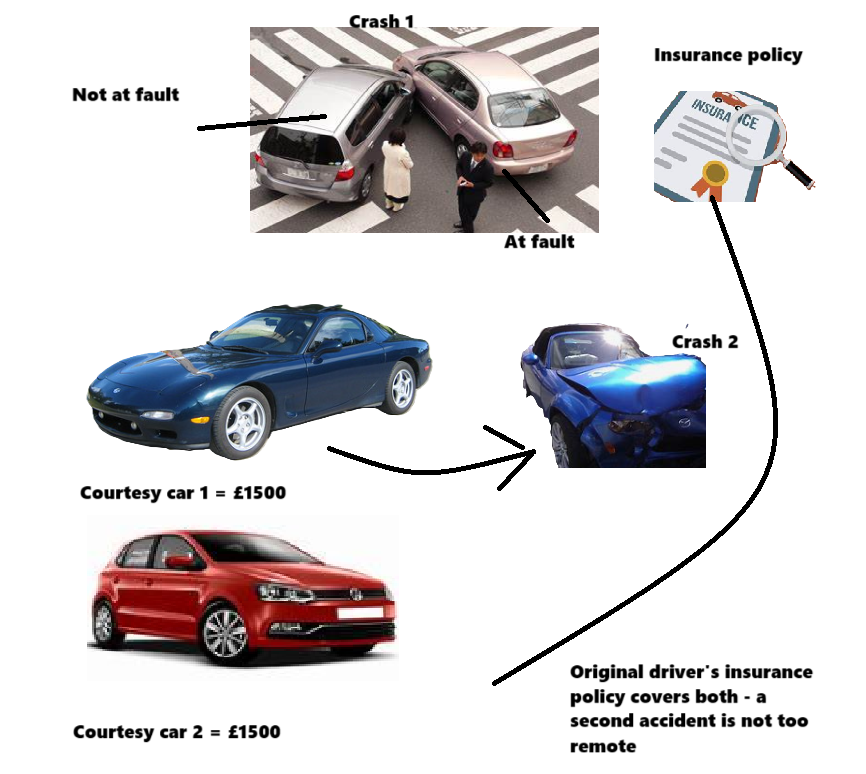Armstead v Royal & Sun Alliance Insurance Company Ltd [2024] UKSC 6 (14 February 2024)
Citation: Armstead v Royal & Sun Alliance Insurance Company Ltd [2024] UKSC 6 (14 February 2024)
Rule of thumb: If you are involved in a no fault crash, so get courtesy car 1, but then have another no fault crash, so get courtesy car 2, who pays the expenses of the courtesy cars? Insurer 1 is liable to the driver for all courtesy car expenses, then it is up to insurer 1 to retrieve this from other insurers.
Background facts: This case invoked the subject of insurance law and the law of evidence/remedies.
The basic facts of this case were that Ms Armstead was involved in no fault accident 1. Armstead was then driving a courtesy car & involved in no fault accident 2.
Ms Armstead claimed the full £1,500 hire costs from rental car 1 & the £1,500 hire costs from rental car 2 from insurer 1. Insurer 1 disputed that they were liable for this & stated that either Ms Armstead herself or the insurer 2 was liable.
Court held: The Court held that it was the ‘remoteness of damages’ principle which applied in this scenario. The Court affirmed that a second accident was not too remote to be claimable against insurer 1. The Court therefore deemed that Ms Armstead was to claim the vehicle hire costs for hire-vehicle 1 & hire-vehicle 2 from insurer 1. It would then be up to insurer 1 to reclaim these from insurer 2, not Ms Armstead.

Ratio-decidendi:
‘74. We have explained why, in our opinion, the courts below were wrong to hold that Ms Armstead could not recover from RSA the sum which she was liable to pay to the hire company under clause 16 of her vehicle hire agreement as damages for its loss of use of the vehicle. Of the various reasons given for rejecting the claim, only one was in principle a legally valid reason. This was that the loss was too remote to be recoverable because the clause 16 sum was not a reasonable estimate of the hire company's likely loss of revenue while the car was off the road for repairs. However, RSA, on whom the burden of proof lay, did not plead or adduce any evidence to show that the clause 16 sum was not a reasonable estimate of the hire company's likely loss. In the absence of any such pleaded allegation or evidence, it was not open to the Court of Appeal to reject the claim on this ground. We would therefore allow the appeal and enter judgment in favour of Ms Armstead for the clause 16 sum of £1,560’.
Lord Leggatt
(Please note that this Judgment is written in a very detailed way – this was the author’s interpretation of this Judgment upon a first reading only, and the author has not scrutinised the Judgment forensically. Please read this & work it out for yourself, and hopefully this has helped you work out how to interpret this Judgment & apply the law to similar scenarios)
Warning: This is not professional legal advice. This is not professional legal education advice. Please obtain professional guidance before embarking on any legal course of action. This is just an interpretation of a Judgment by persons of legal insight & varying levels of legal specialism, experience & expertise. Please read the Judgment yourself and form your own interpretation of it with professional assistance.

